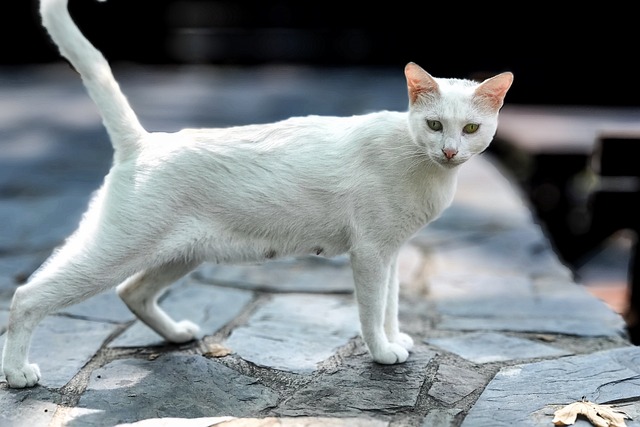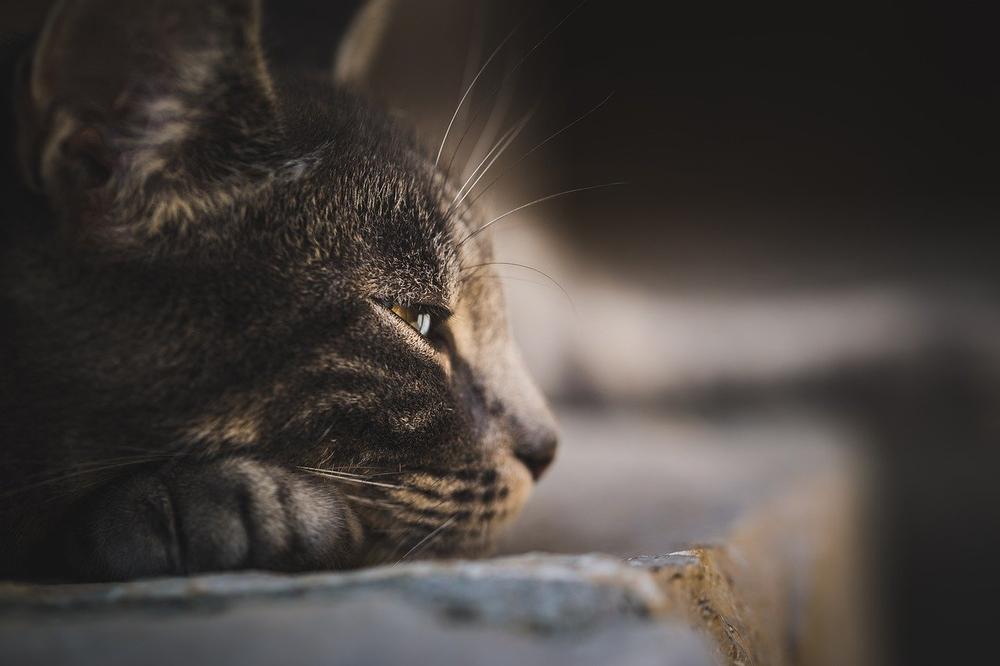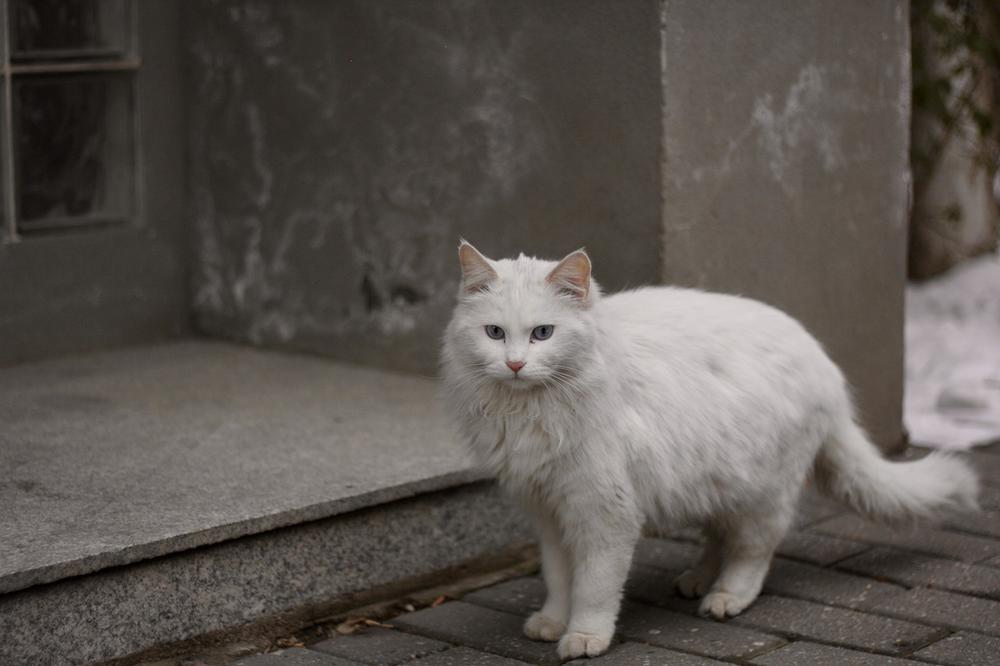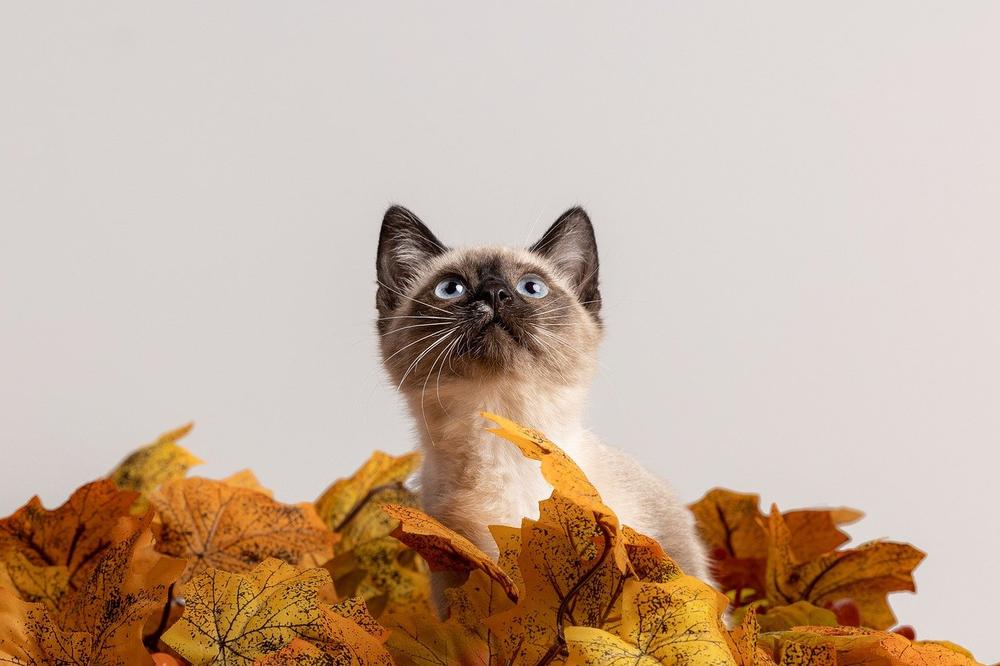Why Is Your Cat Losing Weight? (Reasons & Treatments)

Ever been freaked out by your cat shedding pounds faster than a reality tv contestant?
Yeah, you're not alone.
It's like, are they on some secret feline exercise program we don't know about?😺
But seriously, I hear you.
When your furry BFF starts slimming down, anxiety levels skyrocket.
So, let's dig into the mystery together and figure out what's up with your feline friend.
Ready?
Let's dive in.
Cat Weight Loss: Causes and Discussions with Your Veterinarian
When it comes to helping your cat lose weight, there are a few things you should know and talk about with your vet.
First, keep an eye on how much your cat is eating. Jot it down in a food diary so you can spot any changes in appetite or feeding habits.
This will give you valuable information about their all in all health.
It can be tough to notice weight loss in cats because of their fur, but if you see a visible drop in weight, it's time to take them to the vet.
Unintentional weight loss, particularly in older cats, might mean there's an underlying health issue going on.

Now, let's discuss some possible reasons behind weight loss in cats.
It could be as simple as lifestyle changes or more serious conditions like cancer, diabetes, kidney problems, stress, tummy troubles, dental issues, parasites, getting older, or conflicts with other pets. 😺
Sudden weight loss might also be linked to illnesses such as feline infectious peritonitis, organ failure, or hyperthyroidism.
Weight loss in cats can lead to health problems like hyperthyroidism, which causes issues like increased hunger, a fast heartbeat, and sleeping difficulties.
If you notice your cat losing weight all of a sudden, make sure to let your vet know.
They'll perform a thorough examination and run tests to come up with a suitable plan for your cat's health and weight loss journey.
Main points I'll expand upon further down this article:
- Different forms of cancer can cause sudden weight loss in cats.
- Diabetes in cats can lead to weight loss despite increased appetite.
- FIV, FIP, and FeLV are viral diseases that can cause weight loss in cats.
- Consider factors like food conflicts, routine changes, and anxiety for managing weight loss.
- Regular weighing and condition checks are recommended for managing weight loss.
- Veterinary supervision is crucial when putting an obese cat on a diet.
- High protein, low carbohydrate diets are often recommended for weight reduction.
- Untreated intestinal parasites can cause weight loss in cats.
- Kidney disease and dental problems can also cause weight loss in cats.
- Loss of appetite in cats should be taken seriously as it could indicate serious illnesses.
And if you notice any abnormal growths or tumors on your cat's body, don't dismiss them as they could potentially be indicators of cancer!
Cancer Can Cause Sudden Weight Loss in Cats
Cats may experience sudden weight loss due to cancer. You should be vigilant for abnormal growths, sores, lack of appetite, and other symptoms. Promptly scheduling a vet visit is crucial for early detection and increasing the chances of a full recovery.
Cats weight loss may be linked to cancer.
You should pay attention.
Keep your eyes open for any unusual growths or tumors on your cat's body.
These can be possible signs of the dreaded C word.
Different types of cancer could be the culprit for rapid weight loss in cats.
That means it's necessary to determine exactly what type and stage of cancer you're dealing with for appropriate treatment.
But that's not all...
It's also key to watch out for other symptoms that might indicate cancer.

Keep an eye out for sores, lumps, lack of appetite, vomiting, diarrhea, difficulty breathing, or problems with urination/defecation.
Any one of these issues could mean that your cat is battling cancer.
And when it comes to the well-being of our furry friends, you gotta be vigilant.
If you suspect something's not right with your cat, don't delay.
Schedule a visit to the vet as soon as possible.
Early detection is key to giving your cat the best chance at a full recovery.
But what if cancer isn't the cause of your cat's sudden weight loss?
Well, there might be another underlying condition that you need to consider.
And don't worry, I'm here to shed some light on it!
Diabetes in Cats
Adopting a consistent daily routine for feeding times and insulin administration stabilizes blood sugar levels in diabetic cats.
Diabetes, fellow cat lovers, is a common condition that demands timely veterinary care and uninterrupted treatment. If your furbaby shows signs like excessive thirst, frequent urination, weight loss despite increased appetite, it could be diabetes knocking at their cute little paws.
Prompt action is key, my friends!
Get that precious kitty checked out.
And please remember, providing a structured schedule for mealtime and medication helps regulate those sugar levels, keeping your beloved feline friend healthy and happy.
Now go, give your furry companion some extra love today.
Managing Feline Viral Diseases for Cat Weight Loss Prevention
If your cat has been diagnosed with a viral disease like Feline Leukemia Virus (FeLV), you need to take precautions to prevent it from spreading to other cats in your home.
The most important thing is to keep the infected cat separate so that the virus doesn't have a chance to spread.
Now, you might be wondering how to go about doing this effectively.
First, make sure to create a separate space for the infected cat – a designated area just for them. This includes providing them with their own food and water bowls, litter boxes, and bedding.
By doing this, you minimize the risk of infecting other cats in your household.
The weight loss factor: FIV and FIP
Besides FeLV, there are two other viral diseases that can cause weight loss in cats - Feline Immunodeficiency Virus (FIV) and Feline Infectious Peritonitis (FIP). These diseases can significantly impact your cat's health and well-being.

If you notice your cat losing weight, you should consult with your veterinarian for a proper diagnosis. Your vet will assess the symptoms exhibited by your cat to determine which viral disease they may have.
Each disease requires different management and treatment strategies.
Diagnosis and treatment options
When it comes to diagnosing and treating viral diseases in cats, the approach will vary based on the specific symptoms and condition.
Your veterinarian will conduct various tests, such as blood work and viral detection, to confirm the presence of the virus and devise the best course of action for your cat's health.
The recommended treatments may include antiviral medications, supportive care measures, and managing secondary infections. You should closely follow your veterinarian's recommendations to ensure the best outcome possible for your cat's well-being.
So, if you suspect that your cat may have a viral disease and is experiencing weight loss, don't hesitate to seek veterinary care.
Early detection and proper management are vital for improving your cat's quality of life.
Taking Action for Weight Loss in Cats
Taking action for weight loss in cats is crucial for their health and well-being.
Here are some practical tips to consider:
- Implement environmental enrichment techniques such as providing scratching posts, interactive toys, and vertical spaces. This reduces stress levels and improves overall well-being.
- Consider factors such as food conflicts with other pets, changes in routine or environment, anxiety, depression, and finickiness when managing weight loss.
- Instead of forcing a specific diet, regular weighing and condition checks are recommended.
- Appetite stimulants or alternative feeding methods may be necessary to aid in weight loss.
- Gradually transition from human food to commercial canned food to reduce the risk of medical conditions.
- Providing fresh food later in the day and gradually mixing people food with cat food can also aid in weight loss.
- Veterinary supervision is crucial when putting an obese cat on a diet. Counting calories, measuring food portions, and incorporating short bursts of exercise are effective weight reduction strategies.
- Utilize puzzle feeders and toys during feeding time to manage behavior.
- Weight loss in cats can be caused by untreated intestinal parasites, kidney disease, dental problems, infections, pancreatitis, and even cancer. Symptoms such as diarrhea, vomiting, dull coat, fatigue, and more should be taken seriously and require medical attention.
- Stress can also contribute to weight loss in cats, affecting their appetite and behavior.
And if you're wondering about another common concern for your cat, I've got you covered.
In my blog post, I explore the possible reasons why your cat may be losing its whiskers.
Discover valuable insights and helpful information in my guide, Why Is My Cat Losing Its Whiskers.
So don't hesitate to check it out.
And that wraps up today's article.
If you wish to read more of my useful articles, I recommend you check out some of these: What to Do if I Cut My Cats Nail and It Bleeds, Why Is My Cat So Small, Is Your Black Cat Getting White Hairs, Do Cats Go Into Heat in the Winter, and Newborn Kitten Sneezing a Lot
Talk soon,
-Sarah Davis